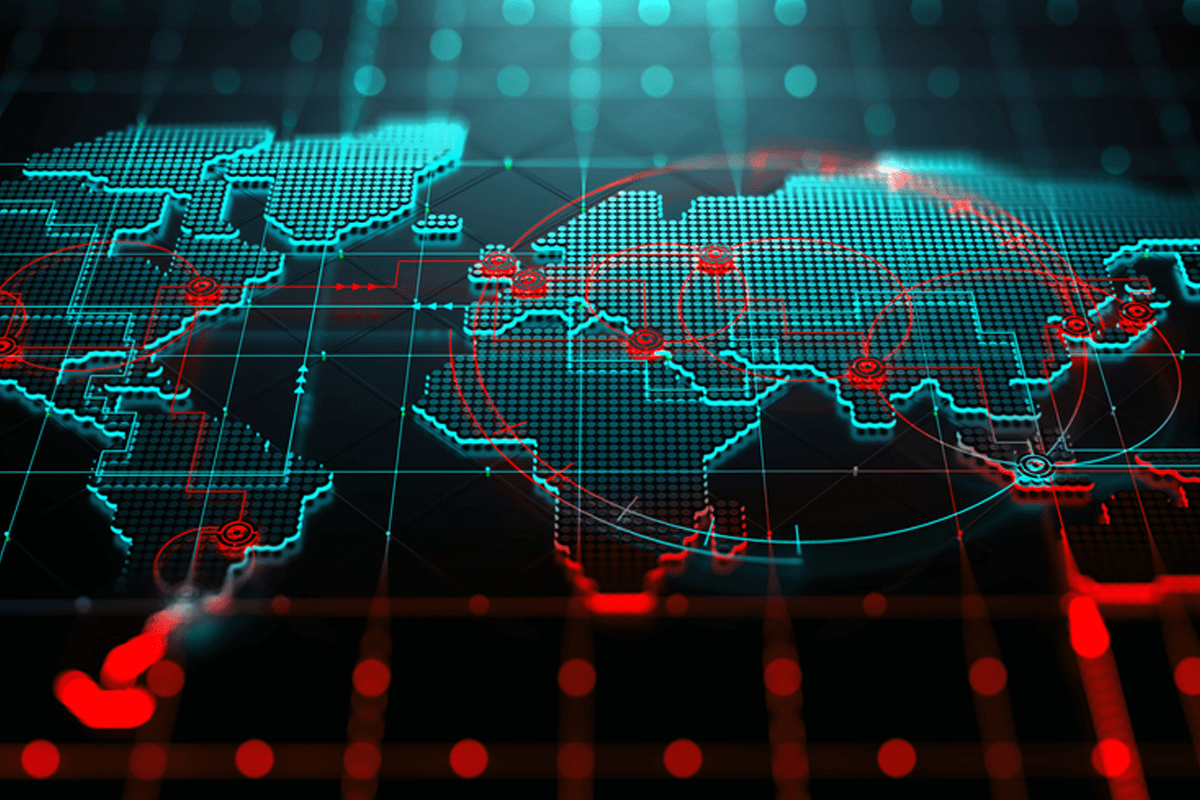The geopolitics of cyber security is the knot that connects privacy, cyber-crime, espionage, and deniability. It is zero-sum: One country’s gain is another’s loss. In the cyber security game, the winner gets total security, and the losers end up with criminals running rampant. So far, the results are mixed at best and most disastrous, i.e., a security fiasco.
It is a little like a military strategist who must consider the capabilities of their army and those of potential allies and enemies, even potential neutrals and bystanders when making battle plans. The same is true about cyber security threats.
Up until now, national disagreements and conflicts have not had a geographical component but today technology has changed that for example controlling resources through pipelines,which is an old geopolitical issue can now potentially take on a cyber-risk component. If you want to prevent someone else from attacking your country’s channel using a cyber-weapon, you better have advanced cyber capabilities yourself which deanonymize the attacker as the Cyber-attacks can often be traced back to their source and the nation behind them can be held responsible.
As the new world order continually evolves, new security concerns, political circumstances, and subsequent technological implications arise as well. Reports of Russian security services knocking out critical infrastructure systems in Ukraine as they did in 2015 or about organizations like the NSA stealing millions of emails from around the world only go on to prove this.
Nonetheless, all of these incidents indeed involve some degree of geopolitics, and cyber warfare has been an element of international politics since, well, computers existed. Two features define competition for cybersecurity supremacy. Firstly, most countries have invested heavily in both offensive and defensive cyber capabilities. Secondly, this competition is played out in the domain of cyberspace rather than indirect clashes between opponents.
However, this forces us to question ourselves with conundrums like whether cyberspace should be under the control of a single world government or left as it is with many national governments both defending and policing cyberspace Or Should there be cooperation between the two groups or hostility Or Should each country have a monopoly on cyber defense within its borders or be allowed to implement any system it likes?
It isn’t easy to get a good sense of the overall picture. We do not have reliable numbers on the size of the cybercriminal underground economy or any way to identify and quantify its activities, let alone judge their impact on national security. There are probably thousands of attackers, and they are , possibly, operating behind political and financial protections that allow them to act with impunity in many cases.
Moreover, cybercrime is inherently international in three ways. First, malicious hackers are dispersed across national borders, and they frequently work for profit rather than any national cause. Second, the Internet — particularly the World Wide Web — is inherently international in reach and free of substantial government regulation. Third, remote attackers can execute successful attacks against nationally based targets from afar; it hardly matters whether a Chinese or Russian hacker has targeted you at this point in the game.
Cyber threats vary not in sophistication but rather by the nature of the players involved. The various elements or players dominating the encryption elements of geopolitics are; nation-state’s policymakers, law enforcement agencies, corporate world, security researchers’ industry, and cyber-criminal groups. Simply put, cybersecurity is related to global politics; it does not operate outside of geopolitics but rather in accordance with it. These issues can be interstate (between countries), intrastate (within countries), and transnational/trans governmental (above and beyond government).
Transnational dangers like hacking and cybercrime tend to have global scope. Still, it is not accurate to say that they do not take place in any particular country. Nations do engage in counter-hacking, they detect and stop cyberattacks and they arrest and prosecute cybercriminals as well. The geopolitics of cybersecurity overlaps with the geopolitics of a military sort in many ways. For example, it pits nation against nation, even as national governments cooperate across borders.
Moreover, social media helps political parties and organizations present their platforms and ideals to ideologies aligned with specific groups. According to a story published by The New York Times in 2019, WhatsApp became a reliable means of secure communication for both the Taliban and the Afghan government in Kabul. In addition to being used on battlefields, it was used as part of a process involving leaders of the Afghan conflict. Because it allows for voices and videos to be sent, it can be used by illiterate people.
Another episode of cyber espionage, in which Chinese hackers stole terabytes of secret documents from government networks worldwide, shows us how important it is to consider the geopolitical factors surrounding cybersecurity. Data also indicate that Russia, Iran, and North Korea are developing cyberweapons.
In addition, a significant fraction of cyber-attacks are performed under the influence of governments and organized crime groups. The leadership of Russia directs cyber teams to conduct various types of active measures, including targeted disinformation and hacking operations, which FireEye has reported.
We are witnessing the rise of nation-states and people with considerable resources to protect, competing to steal secrets, intellectual property, and business-critical information belonging to other nation-states. One can even argue that We are in fact engaged in a new cold war; only now the battles, instead of being fought in secret, play out on Facebook and Twitter for all the world to see.
[1] Two Chinese Hackers Working with the Ministry of State Security Charged with Global Computer Intrusion Campaign Targeting Intellectual Property and Confidential Business Information, Including COVID-19 Research[2] FireEye research, analysis exposes long-standing operations by APT28 targeting government, military, and security groups of interest to Russia




